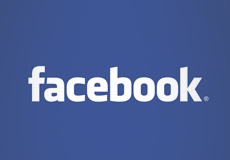After months of negotiations, media companies have finally started publishing their content directly to Facebook. Nine major news organizations, including BBC News, NBC News and The New York Times, have agreed to the Facebook deal. The articles will load faster and the news organizations will be able to sell advertisements and keep the entire revenue. However, some analysts believe that this deal might draw readers and advertisers away from the media companies’ own sites.
 The initial testing will begin with nine media companies: Buzzfeed, The New York Times, NBC News, The Atlantic, National Geographic, The Guardian, BBC News, Bild, and Spiegel Online. Each outlet will only publish a few articles, but Facebook expects the publishing to expand rapidly. The “instant articles” will load up to 10 times faster than they normally would, according to The New York Times.
The initial testing will begin with nine media companies: Buzzfeed, The New York Times, NBC News, The Atlantic, National Geographic, The Guardian, BBC News, Bild, and Spiegel Online. Each outlet will only publish a few articles, but Facebook expects the publishing to expand rapidly. The “instant articles” will load up to 10 times faster than they normally would, according to The New York Times.
These “instant articles” also have more interactive features than they would on typical news sites. Smartphone users can zoom in or tilt the phone to see more of the high resolution photos embedded in the story. The New York Times reports that photos may also have a geographic tag or audio, like a narrator describing the photo.
Users will be able to like individual elements of a story, follow the news organization, or even share it on other social networks.
Media companies will be able to sell their own ads for their Facebook content and keep all of the revenue. They could also rely on Facebook to sell the ads through the Facebook Audience Network. In that case, Facebook will take a 30 percent cut of the ad revenue.
Some publishers are worried, however, that the deal may undermine their own business. People might start going directly to Facebook, instead of going to the media companies’ own sites. Also, putting distribution control in the hands of Facebook is risky business. The mobile gaming company Zynga lost much of its traffic when Facebook decided to change its News Feed algorithm to include less gaming activity.
News organizations are taking the risk because Facebook has over 1.4 billion active users worldwide. Many of those users are on mobile, an increasingly important platform for news consumption. Nearly half of American Internet users said they got news about politics and government on Facebook during the course of a week, almost as many as those who got such news from local television, according to a survey last year by the Pew Research Center.
“That’s where the audience is,” Vivian Schiller, a consultant for media companies, said. “It’s too massive to ignore.”
Related:
Why Facebook’s News Experiment Matters to Readers, The New York Times, 5/15/15

No Comments Yet
You can be the first to comment!
Sorry, comments for this entry are closed at this time.